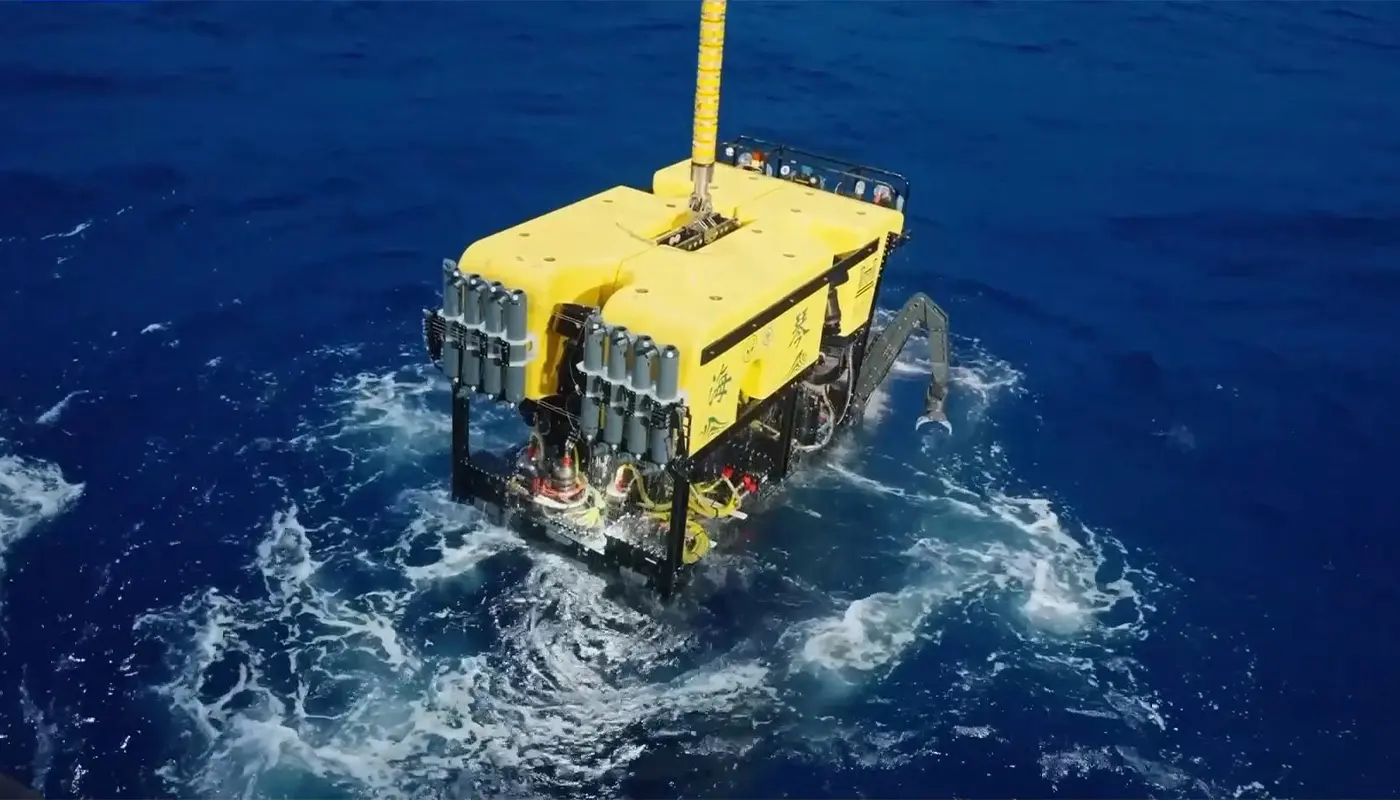ZHUHAI CHINA – A major deep-sea exploration vehicle developed by China has successfully concluded its inaugural sea trials. The remotely operated vehicle (ROV), named Haiqin, is rated for operations down to 6,000 meters.
During its recent mission in the South China Sea, the system performed multiple dives, achieving a maximum depth of 4,140 meters, which effectively validates its operational readiness for full-depth missions.
The trials, which commenced on August 13, involved a series of scientific experiments and rigorous assessments of the vehicle’s technical parameters, stability, and reliability.
The chief engineer for detection technology at the Sun Yat-sen University’s Center for Ocean Expedition, Cui Yunlu, explained the significance of the trials.
“Before the trial, the ROV passed the 6,000-metre pressure test in a land-based testing environment. The sea trial served as a verification process,” Cui stated.
He added that conventional protocol considers a 6,000-meter-class ROV that passes a 4,000-metre sea trial as meeting the requirements for full ocean depth operation.
Operating from the research vessel Zhong Shan Da Xue, Haiqin is engineered to locate, observe, and retrieve samples from the deep seabed with high precision.
Its capabilities are vital for long-term scientific tasks, including marine biodiversity surveys, the discovery of new species, and geological studies.
The current 25-day expedition also involves the fully autonomous ROV Haidou-1, with both platforms supporting a wide range of objectives from meteorological observation to gravity coring sampling.







